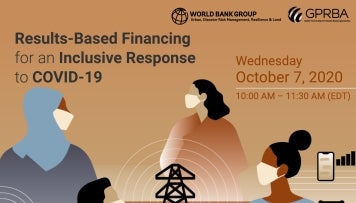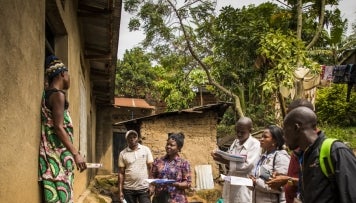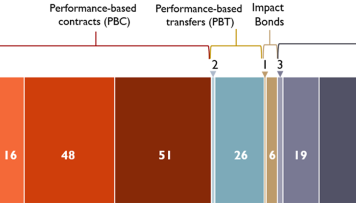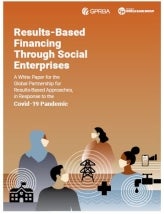
With many local governments overwhelmed and lacking the capacity to deal with the effects of the COVID-19 pandemic, NGOs and social enterprises are stepping in as partners to provide support. These enterprises are playing a key-role in the response efforts and will continue to be important as the pandemic stretches out, with recovery likely to be a long-drawn process experts discussed at an event hosted by the World Bank’s Global Partnerships for Results-Based Approaches (GPRBA).
“Local governments find themselves in a situation where they have to both do their utmost to contain the spread of the virus and to maintain the running of essential services, oftentimes costing more than regular service delivery because of the precautions that would need to be taken and they are doing that in a situation when their municipal revenues are declining,” said Sameh Wahba, Global Director of the Urban, Disaster Risk Management, Resilience, and Land Global Practice (GPURL) at the World Bank.
“Social enterprises have been in the forefront of the response to COVID-19 in reducing the spread and in minimizing the economic and social impact of the crisis. They are a source of trust for the community; they have raised awareness and shared credible information,” said Elaine Tinsley, Private Sector Specialist at the World Bank.
Isabel Guerrero, Executive Director of IMAGO Global Grassroots, emphasized the huge potential shown by social enterprises and their networks in the COVID-19 response, reaching informal sectors and faraway rural areas, and how this could not be possible without access to finance.
Maitreyi Bordia Das, Practice Manager at the GPURL, highlighted that by supporting social enterprises, we are also supporting the social and economic benefits they bring to the communities they work in. “The GPRBA mandate to target the hardest to reach and poorest areas, allows the Partnership – unlike many other results-based finance programs across the world, to work with smaller and less known entities that may likely be doing very innovative and impactful work,” she added.
“In order to solve some of the social problems we are seeing now, the collaboration between social enterprises, donors, and governments is critical. Due to its flexibility, and the focus on outcomes, results-based finance can be an incredible tool during crisis response,” said Erin Worsham, Executive Director, CASE Duke University.
IFC and GPRBA have a history of partnership on engaging social impact enterprises to deliver development results, helping both the communities they serve as well as providing the demand for these social enterprises to succeed, said Edgar Saravia, Principal Investment Office at the IFC. “This white paper will be a very useful resource for us at the IFC to leverage social enterprises and results-based financing to expand and increase the impact of some of the work that we do,” he added.
Soma Ghosh Moulik, Practice Manager, Water Global Practice, World Bank, closed the event highlighting how results-based finance can play a key role in de-risking public funds to pay for outcomes delivered by private social enterprises, while still providing financial support for social enterprises to sustain and expand their operations.










